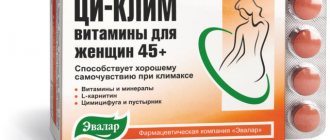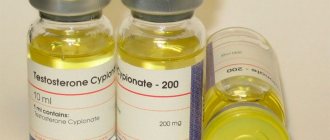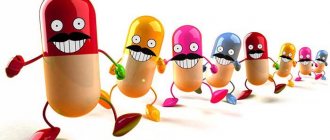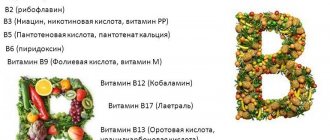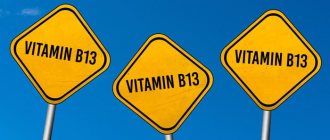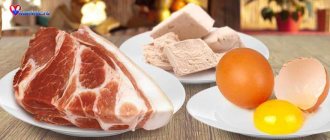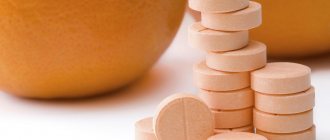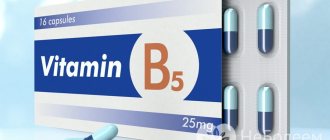Benefits for the body
Vitamin D comes in two types – D2 (ergocalciferol) and D3 (cholecalciferol). The first is found mainly in plant sources and has low bioavailability. Cholecalciferol is present in products of animal origin (red fish, egg yolks, liver, fatty cottage cheese) and is produced in the body under the influence of UV radiation.
Now Foods, Vitamin D-3, 5,000 IU, 240 Softgels
★★★★★
from 872 ₽
More details
The vitamin performs a number of functions:
- regulation of phosphorus-calcium metabolism;
- aromatase suppression;
- improved muscle strength;
- blood pressure control;
- prevention of myocardial infarction and type II diabetes;
- obesity prevention;
- accelerating recovery processes after injuries and illnesses.
Attention! Vitamin D deficiency may result in decreased appetite, decreased stamina, muscle weakness, and increased fragility of teeth and bones.
Vitamin B12: who needs to take it, what it is responsible for in the body.
Vitamins are a group of low molecular weight organic compounds of relatively simple structure and diverse chemical nature. You can also find another name - micronutrients, since the body needs them in very small quantities compared to proteins, fats and carbohydrates.
We will talk specifically about vitamin B12. It belongs to coenzymes and contains cobalt. It is found exclusively in animal products, which is a big problem for vegetarians. A small part of it is synthesized by the human intestinal microflora, but for the body to function properly, it is necessary to take the vitamin with food.
Vitamin B12 is actively involved in the synthesis of DNA components; its deficiency leads to disruption of bone marrow cell division and subsequently the maturation of red blood cells decreases. It is responsible for lowering homocysteine levels, which increases a person's chances of having a heart attack or stroke. But for the most effective work of vitamin B12, folic acid is needed.
B12 is necessary for the synthesis of choline, a substance that prevents fatty degeneration of our liver. Participates in the synthesis of amino acids, myelin - the sheath of nerve fibers. Therefore, with a lack of B12, various neurological disorders develop.
Athletes will be interested in its role in muscle growth and in maintaining the vital activity of the nerve fibers of the spinal cord, through which the musculoskeletal system is controlled, stabilization and normalization of the central nervous system. Large role in carbohydrate metabolism. The use of vitamin B12 in bodybuilding is aimed at increasing the function of hematopoiesis, increasing the content of red blood cells in the blood - erythrocytes. They carry oxygen from the lungs to all organs and tissues, including muscles. As a result, our muscles will always work at maximum capacity.
Vitamin B 12 helps overcome insomnia and also helps adapt to changes in sleep and wakefulness, which is explained by the participation of cyanocobalamin in the synthesis of melatonin. For an athlete, healthy sleep is very important; this is when our body fully recovers after tiring workouts.
Vitamin B12 dosage
When purchasing any vitamins, the daily dose is written on the package, but it does not take into account the person’s height, weight, gender and physical activity. Dosage is an individual indicator and reflects the current need for a particular person. It depends on age, physiological state, working conditions, rest and the external environment. The recommended dosage per day is from 1 to 3 micrograms.
With a good and balanced diet, a person receives the required amount of vitamin B12, but keep in mind that food is subjected to heat treatment or long-term storage, and its value decreases. If a person is a vegetarian or follows a diet, he limits the sufficient intake of the vitamin in the body. Smoking, drinking alcohol and exposure to exhaust fumes in megacities increase the need for vitamin B12. For bodybuilders, the daily dosage can increase from 5 to 20 micrograms.
How to diagnose vitamin B12 deficiency and replenish it
B12 is a fat-soluble vitamin and accumulates (deposited) in the liver; if it is deficient, deficiency can only be felt after 3-4 years. The shortage will most quickly make itself felt in autoimmune diseases and intestinal malabsorption. Symptoms of vitamin deficiency include paresthesia - goose bumps, tingling. On the part of the central nervous system - irritability, memory impairment, depression. To treat vitamin deficiency, doses should be higher than prophylactic ones.
What's better: injections or tablets?
Scientists conducted a series of experiments that showed that the effect was almost the same, even if patients had problems with absorption in the gastrointestinal tract. It is worth resorting to injections if there is a serious deficiency of vitamin B12, but then you can still switch to tablets. Be aware that some antibiotics affect the absorption of B vitamins. Also, large dosages of vitamin C suppress the absorption of B vitamins.
Below is a table of vitamin B12 content in foods.
Role in sports
With regular physical activity, athletes' bodies begin to use nutrients more intensively. This leads to disturbances in calcium-phosphorus metabolism, a decrease in the effectiveness of training, and a deterioration in well-being. Vitamin D receptors are also present in the cells of muscle tissue, skeletal muscle, kidneys, liver, parathyroid gland, and blood. Therefore, low levels of cholecalciferol can cause worse training results, reduced trophic intensity and reduced muscle tissue growth.
The following categories of athletes are at risk for vitamin D deficiency:
- those who often train indoors or outdoors during periods of low solar activity (early morning or late evening);
- living beyond latitude 35 north and south of the equator;
- vegetarians;
- regularly using products with a high degree of SPF protection;
- persons with disorders of the gastrointestinal tract, accompanied by deterioration of nutrient absorption;
- people with a genetic predisposition to diseases of the musculoskeletal system.
Watch a video about the role of vitamin D in sports:
Application
Long-term physical and mental stress, an unbalanced diet, intensive training, disease prevention are direct indications for taking B vitamins. They are needed both during preparation and when traveling to another climate zone, during recovery from illness, performances, and competitions.
Since B-vitamins are needed for the absorption of proteins, carbohydrates and fats, it makes sense to take them not only for sports purposes. In addition, they allow you to make maximum use of nutrients to increase energy potential, improve immunity, neutralize free radicals, and are responsible for normal brain activity.
Pharmacological properties
The pharmacodynamics of vitamin D3 is to regulate the absorption of phosphorus and Ca salts in the small intestine. Calcium ions play an important role in maintaining the functioning of skeletal muscles, strengthening bone tissue, conducting nerve impulses and influencing the process of blood clotting.
Pharmacokinetics depends on the state of the gastrointestinal tract. The vitamin is formed in the skin under the influence of ultraviolet rays and from there enters the blood. When taken orally, cholecalciferol is absorbed under the influence of bile acids in the distal small intestine. In the blood it binds to albumin and g-globulins. Accumulates mainly in adipose tissue. Conversion to the active form occurs in the skin and kidneys. During the process of hydroxylation, 25-OH-D3 is formed in the liver. This compound is converted into the active form 1,25-(OH)D3 in the kidneys under the influence of parathyroid hormone. Excretion is carried out with the participation of bile. The half-life of D3 is 19 days.
Vitamin B6 - action, indications, deficiency and overdose
This article pays special attention to vitamins B6 and B12. Let's start with pyridoxine - B6
This element is included in a large number of supplements and comes with food. In addition, the human body is capable of synthesizing it, but in an insignificant amount.
A lack of substance is provoked by taking antibiotics, poor diet or problems with the gastrointestinal tract. Pyridoxine in each form is stable - resistant to heat and oxygen. The main disadvantage is destruction under the influence of sunlight.
The functions are as follows:
- Improving metabolic processes. Scientists have proven that B6 is involved in many metabolic processes - the metabolism of cholesterol, amino acids, proteins and fats.
- Strengthening the heart. The human body needs pyridoxine, because the latter normalizes the production of prostaglandins - elements that regulate the functioning of the heart muscle and normalize blood pressure.
- Restoring the power of the immune system. The vitamin is known for its ability to accelerate cell division and help the body produce antibodies.
- Improving the condition of skin and hair.
- Normalization of the central nervous system. Research has shown that B6 is involved in the production of important neurotransmitters responsible for brain function and mood. The volume of pyridoxine in the “gray matter” is 30-50 times greater than in the blood.
- Participates in the formation of genetic material, accelerates the process of synthesis of red blood cells and hormones.
- hypo- and vitamin deficiency;
- diarrhea;
- infectious diseases;
- problems in the diet;
- recovery after surgery to remove the stomach;
- dermatitis.
- Animal sources - veal, poultry, pork, beef liver.
- Plant sources - pomegranate, lemons, cabbage, tomatoes, carrots, cereals, potatoes, bread and others.
The human body must receive vitamins in a strictly defined dosage per day. For B6 it is 2-6 mg. Overdose often leads to central nervous system disorders. Lack of the substance is more dangerous and is expressed by the following symptoms:
- Malfunctions of the central nervous system - irritability, drowsiness.
- Skin disorder - dermatitis.
- Anemia.
- Disorders in the digestive tract.
The following categories of people are at risk of vitamin deficiency:
- infants;
- people taking antibiotics for a long time;
- women taking hormonal contraceptives;
- patients with liver diseases, atherosclerosis, polyarthritis;
- pregnant women.
Contraindications and precautions
Taking vitamin D is contraindicated in the following cases:
- increased levels of D3 in the blood serum, Ca+ ions in the urine and blood;
- the presence of calcium oxalates in the kidneys;
- sarcoidosis;
- chronic kidney and liver diseases in the acute stage;
- renal failure;
- active form of pulmonary tuberculosis.
The use of the vitamin with caution is prescribed in the following cases:
- prolonged immobilization;
- use of cardiac glycosides and thiazides;
- period of pregnancy and breastfeeding;
- chronic pathologies of the liver and kidneys.
Note! Before starting use, you need to get tested for the level of 25-OH-D3 in the body.
Harm of vitamin B
An excess of B vitamins manifests itself with the same symptoms as a deficiency:
- Redness of the skin.
- Migraine, dizziness.
- Dyspepsia, stomach discomfort.
- Skin hypersensitivity.
- Tingling sensation in the feet or other parts of the body.
- Sleep disorders.
- Cramps.
Symptoms depend on which particular vitamin is taken in too much.
Taking B-complex causes changes in urine: it becomes dark yellow and acquires a specific odor.
Vitamin D in sports nutrition
During intense physical activity, testosterone is transformed into estrogen. This process is regulated by the aromatase enzyme. Thus, regular intense exercise can provoke a decrease in the intensity of muscle mass growth and deterioration in endurance. Vitamin D inhibits aromatase activity, thereby reducing the level of estrogen in the blood.
The use of high doses of cholecalciferol leads to the fact that testosterone begins to be more intensively synthesized in the body, increases the concentration of steroid hormones in the blood serum, and enhances muscle nutrition.
Attention! The level of D in the body of a training person should be higher than during normal exercise.
Vitamin D also reduces the volume of adipose tissue. A study in Tehran found that the group of subjects who took cholecalciferol supplements showed greater results in losing excess weight than those who took a placebo.
Interaction with other substances
Vitamin D is recommended to be taken together with calcium, since these substances directly interact with each other. Thanks to the vitamin, the microelement is better absorbed by bone and tissue cells.
Magnesium is consumed more intensively with an increase in vitamin D levels, so it would also be correct to combine their intake.
Vitamins A and E are also better absorbed under the influence of vitamin D; it prevents hypervitaminosis from occurring when they are in excess.
It is not recommended to combine vitamin D with drugs whose action is aimed at lowering cholesterol levels; they block its passage into the cell.
Release forms
Synthetic vitamin is available in several forms:
- Oil solution. The composition contains triglycerides, which promote the absorption of the active substance. Such products have a minimal amount of additional components, are well tolerated and rarely cause side effects.
- Water solution. Preparations based on benzyl alcohol, which helps fat-soluble cholecalciferol dissolve in water. Such drugs are characterized by rapid absorption and a reduced half-life. They contain a number of additional components that improve the organoleptic properties of the solution.
- Gel capsules. Inside the shell there is an oil solution with vitamin. This form of release prevents the oxidation of fatty acids and preserves the beneficial properties of the active components.
- Pills. Contains additional microcrystalline cellulose. They need to be drunk whole with meals, which can be inconvenient.
- Chewable tablets. In addition to cholecalciferol, they additionally contain flavorings and sweeteners to improve organoleptic characteristics. The disadvantage of this form is the presence of sugar.
Vitamin B3
Niacin, or niacin, produces energy from food that helps fuel intense workouts. It’s not difficult to guess that without a sufficient amount of B3, and, accordingly, energy, there is no need to talk about productive training and muscle growth.
Niacin is present in meat, milk, eggs, fish, legumes, and potatoes.
Dosages and regimen
The preventive dosage is 400 IU (10 mcg) of the vitamin per day. People who engage in bodybuilding and heavy physical activity need a higher daily intake - up to 800 IU (20 mcg). The maximum allowable daily amount is 2000 IU (50 mcg). It should also be taken into account that regular use of high doses can cause excess and lead to intoxication of the body.
It is recommended to take the vitamin in the first half of the day, during meals. It is better absorbed when consumed simultaneously with fatty foods and vegetable oils. Course duration is 4-8 weeks. Then, as therapy, it is recommended to use cholecalciferol at a dosage of 2000 IU per day for 4 weeks. This use helps to quickly normalize testosterone levels in the body.
what foods contain B vitamins
Animal sources of B-vitamins - tuna, beef, turkey, milk and dairy products, eggs (yolk), organ meats (liver, kidneys, heart). Important plant sources include cereals, grains, legumes, fresh herbs, avocados, Brazil nuts, and bananas.
It is no coincidence that B5 is called pantothenic acid, which means “ubiquitous”. B5 is found in all foods.
Since the complex includes several essential vitamins that are not synthesized by the body, it is easy to encounter a deficiency of at least one.
As a result, training productivity will decrease and overall health will deteriorate. Although B vitamins of animal and plant origin are resistant to heat treatment, they may be initially deficient in food. This is explained by the fact that almost all products (fruits, vegetables, cereals, meat) undergo technological processing before entering the store, which reduces their nutritional value. In this case, athletes are helped out by foods enriched with vitamins and dietary supplements - bioactive additives.
Overdose
An overdose is accompanied by the appearance of the following symptoms:
- thirst;
- lack of appetite;
- pain in the epigastric region;
- bowel disorders;
- nausea;
- vomit;
- increased blood pressure, body temperature;
- migraine.
Prolonged overdose leads to the formation of calcifications. To avoid this, it is necessary to analyze the sources of vitamin intake in the body:
- UV exposure;
- diet;
- taking dietary supplements.
During periods of high solar activity, regular monitoring of 25-OH-D3 levels is necessary to avoid overdose. In summer, the daily intake of vitamins consumed with supplements should be lower.
If signs of overdose appear, it is recommended to stop taking dietary supplements and drink large amounts of water.
Secrets of choosing a vitamin complex with B vitamins
When purchasing sports vitamins, you should focus on products that contain all 11 B-group vitamins (sometimes 4-5) in a concentration close to the daily requirement and in an easily digestible form.
Using folic acid as an example: if the folate cycle is disrupted, the Folic acid form is absorbed worse than the Folate form. Another example: cobalamin (B12) in the forms Methylcobalamin, Adenosylcobalamin is preferable to the Cyanocobalamin form, since cyanocobalamin is excreted too quickly and does not have time to transform into digestible methylcobalamin.
Cyanocobalamin (vitamin B12) [edit | edit code ]
Cyanocobalamin
- the main form of vitamin B12 in which it enters the body. It is part of most vitamin complexes, and is also available in the form of an injection solution, which has a characteristic pink color.
Biological effect [ edit | edit code ]
- Participates in protein metabolism
- Participates in the formation of red blood cells (with a deficiency, anemia occurs)
- Necessary for the synthesis of nerve fiber - myelin (if there is a deficiency, funicular myelosis occurs)
- Included in many enzymes
- Participates in creatine synthesis
B12 in sports [edit | edit code ]
Cyanocobalamin has a large number of physiological functions, including those useful for bodybuilding:
- Ensuring normal functioning of the central nervous system
- Carbohydrate metabolism
- Muscle stimulation due to nervous activation of trophic processes, as well as high contraction force and coordination
